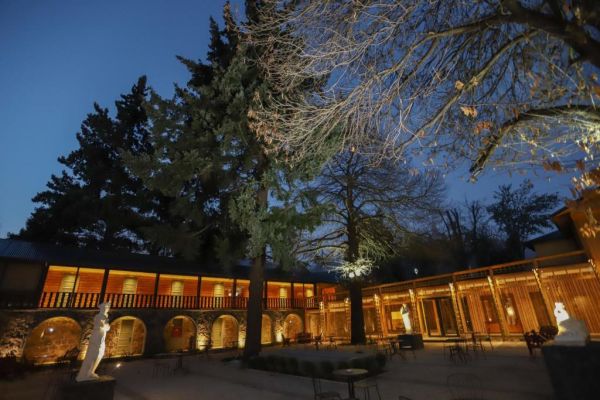10 interesting facts about tipping while traveling

In the fascinating world of travel , there's one topic that always sparks both questions and curiosity : tipping . This small gesture of appreciation can become a charming touch or an awkward moment depending on where you are.
While in some countries tipping is a symbol of gratitude and almost expected as a social norm , in others it can be seen as disrespectful . There are places where tipping can cause confusion , especially if there's a language barrier , potentially leading to an awkward moment.
Get ready to discover how tipping , though it may seem like a minor detail, can reflect profound cultural differences . Here are 10 surprising facts about tipping in different destinations around the world .
1. Japan: Tipping is an insult
In Japan , excellent service is the standard, and workers consider their salary a reflection of their commitment. Attempting to leave a tip can be interpreted as an offensive gesture, implying that the employee's work wasn't good enough. Instead, a sincere verbal thank you or a polite bow is expected.

2. United Kingdom: Beware of service charges
In the UK , many restaurants include a service charge on the bill, usually 12.5% . If this isn't included, it's expected to be around 10-15% as a tip . However, in pubs or bars , tipping is not common unless the service is exceptional.
3. United States: Mandatory, although not official
Tipping is practically an unwritten rule in the United States . It's common to leave between 15% and 20% of the total bill at restaurants , since employees' base salaries are usually very low. In other services , such as taxis or hair salons , a 10% tip or more is also expected. Failing to tip can be considered extremely rude .

4. Thailand: Small gestures, big impacts
Tipping is not mandatory in Thailand , but it is greatly appreciated. In upscale restaurants , it's customary to leave an extra 10% if the service was good. For small services , such as taxis or massages , rounding up the fare or leaving a few coins is a kind gesture that will be warmly received with a smile .
5. France: Included in the count, but there are exceptions
In France , the tip (known as service compris ) is included in the restaurant bill, usually as 15% of the total. However, it's customary to leave a few extra coins if the service was exceptional. In cafes and bars , rounding up the bill is appreciated, though not required .

6. Italy: Tips or "coperto"?
Restaurants in Italy typically include a 'coperto' , a fixed charge per person that covers table use, bread , and basic service . While additional tipping is not expected, tourists often leave coins or round up the bill as a sign of appreciation .
7. India: Between the expected and the optional
In India , tipping , known as 'baksheesh' , is common practice in restaurants , hotels, and taxis . In restaurants , it is expected to leave between 5% and 10% if the service does not include a charge . It is also customary to give small, rounded tips at street stalls , to bellhops , or tour guides as a token of appreciation .

8. Australia and New Zealand: No pressure, but welcome
In these Oceanic countries , tipping is not mandatory , as wages are generally fair. However, if the service was exceptional, an extra 10% or rounding up the bill is a way to express gratitude . Employees will appreciate it, but they won't demand it.
9. Mexico: More than meets the eye
Tipping is important in Mexico , especially in restaurants and bars . Although the standard is between 10% and 15% , many service industry workers rely on these tips to supplement their income. In markets and street stalls , while not mandatory , leaving small change is greatly appreciated.

10. South Africa: Tipping as a cultural norm
In South Africa , it is customary to leave a 10-15% tip in restaurants . For safari guides or drivers , tips are an important part of their income , and it is recommended to consult local guides to find out how much to tip depending on the type of activity .
You may also be interested in: Holidays in Chile 2025: Calendar and long weekends




















